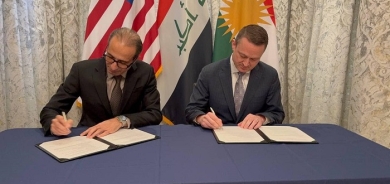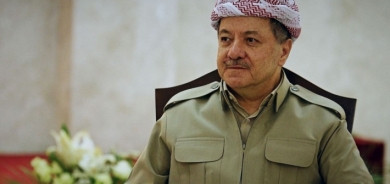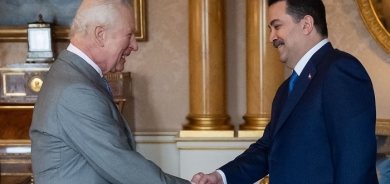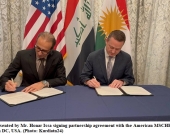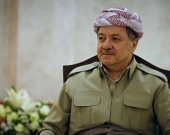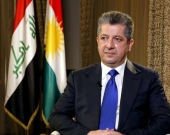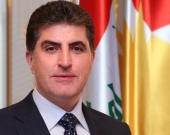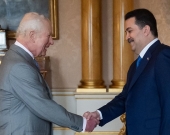Iraqi Kurdistan Welcoming but Overwhelmed by Syria Refugees

ERBIL, Kurdistan Region – Iraq’s autonomous Kurdistan Region has tried its best to deal with the huge influx of war refugees from across the border in Syria, but its young government does not have the experience or structure to deal with such a crisis and is simply overwhelmed, according to the UN and Norwegian refugee agencies.
“It’s a new government and new governments may not have the bureaucratic structure to deal with a situation such as this, which they have never seen before,” said William Tall, the new head of the United Nations High Commissioner for Refugees (UNHCR) North.
He said that the UN is working with the Kurdistan Regional Government (KRG) to tackle the already 160,000 displaced Syrian refugees in Iraqi Kurdistan.
Tall said the ideal solution would be to return the displaced Syrian refugees back into their homes in Syria as the situation calms, but the civil war seems to have no solution in sight.
“Everyone’s pessimistic about what’s happening in Syria,” he said.
A July report by the UNHCR found that the KRG was initially “very welcoming,” issuing residency permits that allowed refugees to work and move freely around the three-province enclave, where the Kurds have enjoyed autonomy in earnest since the 2003 US-led invasion that toppled Saddam Hussein.
But the report said, “There are signs that official policy is becoming more restrictive,” as the scale of the influx “exceeded all expectations, and as international funding has failed to keep pace with refugee needs.”
“It’s like a guest in your house, you’re welcome for a while, but you can’t live here. I think that’s a typical attitude toward refugee situations,” Tall said. “We totally understand this.”
Iraq’s Kurds share ethnic ties with other Kurds in the Middle East, including Syria, where the large minority Kurds have so far largely stayed out of a civil war that is in its third year. Kurdish groups in Syria have clashed with Islamist fighters who are reportedly affiliated with Al-Qaida.
According to the Norwegian Refugee Council, “In late 2012 and early 2013, the authorities began expressing frustration at the lack of international funding and support. Faced with huge daily increases in refugee numbers and without prior experience or technical capacity to draw on, KR-I (Kurdistan Region-Iraq) authorities have been overwhelmed.”
The Norwegian council also cited the need for increased cooperation between the UNHCR and the KRG in order to properly assess the problem.
Tall said UNHCR North has been awarded about $35 million for the Syrian refugee crisis in Erbil and another $8 million for various other projects.
“If we need more we will ask for more. We are not going to let the budget be the constraint,” he vowed.
The KRG at first was open to contributing funds into the system, and at one point Prime Minister Nechirvan Barzani put $10 million into the crisis. Millions more were initially poured in by the government.
The KRG also set up the Domiz Camp when Syrian refugees began to cross the border into Kurdistan.
But since the political situation between Kurdistan and Baghdad began to worsen, and Erbil was faced with a budget crunch, the KRG has not allocated more funds to the refugee crisis, according to the Norwegian council.
Tall said the KRG faces the dilemma of providing acceptable conditions for refugees, while taking care that the refugees do not become so comfortable that they will not want to return to their homes.
Already, many refugees have gone outside the boundaries of the Domiz Camp, with about 90,000 refugees located in towns and cities, including Erbil.
These refugees often occupy public space often propping up their own tents and homes along city streets in Erbil. Tall said that the KRG’s “patience is running thin with this.”
The KRG has refused to aid refugees living outside the camps, and has placed restrictions on the guidelines of the residency visas issued to refugees, according to the report.
About 50 to 60 Syrian individuals are still crossing the border daily into Iraqi Kurdistan as a result of the Syrian civil war, according to UNHCR North, most of them Syrian Kurds.
An estimated two million Syrians have fled the civil war to various countries, including Egypt, Jordan, Lebanon and Turkey – besides Iraq, where most are in the Kurdistan Region.
The Domiz Camp, near Duhok, has been drastically overcrowded, housing around 35,000 refugees in a facility which was supposed to house only 15,000. Two more camps are planned, in Erbil and Sulaimaini, with a total capacity of more than 20,000.
RUDAW


